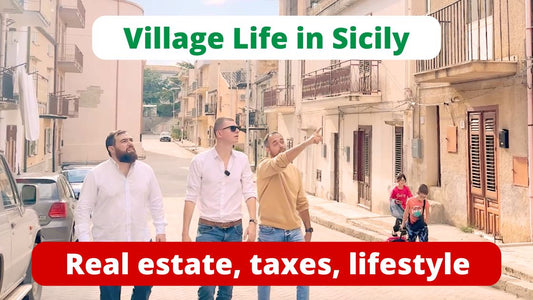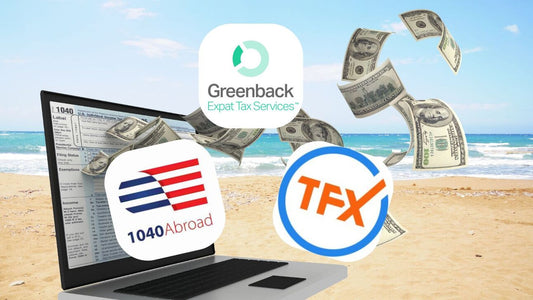Table of Contents
-
Introduction: The Parisian Real Estate Mirage
-
1. Affordability Crisis: A Market Priced Out of Reach
-
2. Interest Rate Dynamics: A Distorted Financial Landscape
-
3. Prohibitive Price Points: Minimal Value for Substantial Investment
-
4. Dismally Low Rental Yields: A Financial Disincentive
-
5. Escalating Taxation: A Hostile Environment for Property Owners
-
6. Demographic Challenges: A Shrinking Urban Population
-
7. Transaction Costs: A Financial Burden
-
8. Taxation Nightmare: International Investor Penalties
-
9. Regulatory Restrictions: Short-Term Rental Limitations
-
10. Capital Gains Challenges
-
Alternative Investment Strategies
-
Conclusion: Proceed with Extreme Caution
-
Final Recommendation
14 Critical Reasons to Reconsider Real Estate Investment in Paris
Introduction: The Parisian Real Estate Mirage
Paris, the iconic global city that has captivated imaginations for centuries, might seem like an irresistible real estate investment destination. However, beneath its romantic facade lies a complex and challenging property market that can quickly turn dreams of profitable investment into a financial nightmare.
1. Affordability Crisis: A Market Priced Out of Reach
The Parisian real estate market presents a stark affordability challenge. A typical 60m2 apartment now costs nearly 14 years of average local salary - a staggering price-to-income ratio that far exceeds international benchmarks. For comparison, New York, another notoriously expensive market, stands at approximately 8 years.
Key Implications:
- Unsustainable pricing for local residents
- Market dominated by speculators and wealthy investors
- Limited potential for organic market growth
2. Interest Rate Dynamics: A Distorted Financial Landscape
For nearly a decade, the Paris real estate market was artificially inflated by:
- Extremely low fixed interest rates (sub-1%)
- Leverage options up to 110% for locals
- Significantly higher borrowing costs for non-residents
This created a speculative bubble that is now experiencing a prolonged deleveraging phase, potentially signaling market instability.
3. Prohibitive Price Points: Minimal Value for Substantial Investment
With average prices exceeding 10,000 euros per square meter, investors face significant barriers:
Discovering Sicily's Hidden Real Estate Gems
Discovering Sicily's Hidden Real Estate Gems: A Comprehensive Guide to Village Life and Investment Opportunities Introduction to Sicily's Untapped Real Estate Potential Sicily represents one of Europe's most compelling yet... Keep Reading →
- 30m2 studios in desirable areas can cost 13,000 euros/m2
- Cheaper options often located in high-crime or problematic neighborhoods
- Comparable international markets offer substantially better value
Comparative Investment Example
- Paris: 390,000 euros for a small, modest apartment
- Budapest: Same investment secures a prime location with parliamentary views
4. Dismally Low Rental Yields: A Financial Disincentive
Rental yields paint a bleak picture for potential investors:
- Gross yields range from 2.8% to 3.6%
- Net yields plummet to a mere 1.4-1.8% after expenses
- Maintenance costs can consume an entire year's rental income
5. Escalating Taxation: A Hostile Environment for Property Owners
The Parisian real estate landscape is characterized by:
- 83% increase in property taxes between 2014-2023
- Continuous government "reevaluation" of property taxation
- Increasing regulatory compliance costs
- Rent control measures
- Potential future tax burdens
6. Demographic Challenges: A Shrinking Urban Population
Paris is experiencing significant demographic shifts:
- Population decline of nearly 100,000 inhabitants in 12 years
- Projected loss of 200,000 residents by 2040
- Displacement of traditional taxpayers
- Increasing social housing population
7. Transaction Costs: A Financial Burden
Investors face substantial transactional expenses:
- **Approximately 8% in purchase-related costs
- Additional 3% in selling expenses
- Minimum 11% price appreciation required to break even**
8. Taxation Nightmare: International Investor Penalties
Non-resident investors confront:
- 33% flat tax on net income
- Potential effective yields as low as 0.5-0.7%
- Special taxes on secondary homes
- Punitive inheritance and wealth taxes
9. Regulatory Restrictions: Short-Term Rental Limitations
Airbnb and short-term rental strategies face:
- Strict 120-day annual rental limit
- Dedicated municipal enforcement
- Increasing taxation and regulatory barriers
10. Capital Gains Challenges
Capital gains taxation presents additional complications:
- High tax rates
- Complicated 22-30 year phaseout periods
- Potential future flat taxation at 33%
Alternative Investment Strategies
Given these challenges, investors should consider:
- Diversified international real estate markets
- Locations with more favorable tax structures
- Markets with stronger rental yield potential
- Emerging economic zones with growth potential
Conclusion: Proceed with Extreme Caution
While Paris remains a globally significant city, its real estate market presents significant challenges for non-resident investors. The combination of low yields, high taxes, regulatory complexity, and demographic shifts makes it an unattractive investment destination.
Successful international real estate investment requires:
- Comprehensive market research
- Understanding local economic dynamics
- Realistic yield expectations
- Flexibility in investment strategy
Final Recommendation
Potential investors should thoroughly evaluate alternative markets that offer:
- Higher rental yields
- More investor-friendly regulations
- Stronger potential for capital appreciation
- More transparent taxation frameworks






